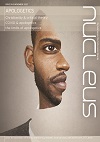In February 2020 our Sheffield student CMF group, along with several doctors, undertook the Saline Solution course, led by Ravi Thevasagayam, a local ENT consultant. The course is designed to equip and encourage healthcare professionals to better witness for Jesus to patients and colleagues. Discussions centered around ways of initiating conversations about faith on patients' terms, techniques for building spiritual relationships, and methods to identify and overcome barriers individuals may have to Christianity. Exploration led us to discover that such barriers may comprise intellectual ones (the stigma surrounding the equation of belief in God to 'intellectual suicide'), emotional (for instance, following discrimination based on religious beliefs), or volitional — some patients or colleagues may simply never have felt a need to ponder the existence of a higher power.
We were reminded of Paul's words: 'Be wise in the way you act toward outsiders; make the most of every opportunity. Let your conversation always be full of grace, seasoned with salt, so that you may know how to answer everyone.' (Colossians 4:5-6) As healthcare professionals, we are in a uniquely privileged position by which we can fulfil this command. The stressful and often emotionally charged environment in which we work and study can be a catalyst to make people consider, perhaps for the first time, issues such as suffering, mortality, and what comes after death.
I was surprised to learn that, far from skirting around the subject of faith, the GMC states: 'you should take account of spiritual, religious, social, and cultural factors', [1] whilst the RCN guidelines also call attention to the importance of religion to some patients. [2] We explored how discussion centering around faith could be brought up whilst taking a history, for example, by enquiring whether a patient has any spiritual beliefs or a religious community which they can rely on in difficult times. The guidelines go on to state that a healthcare professional's personal beliefs should only be mentioned if a patient directly asks about them. This led to a discussion in our group about 'faith flags', which are small ways of indicating one's faith non-verbally, such as wearing a cross or fish symbol, or CMF lanyard. We found that there was much anecdotal evidence to suggest that colleagues and patients alike are curious about these symbols and are open to conversation about them, and it seems to me to be a small but significant step towards being a bolder witness for Christ. ?
































